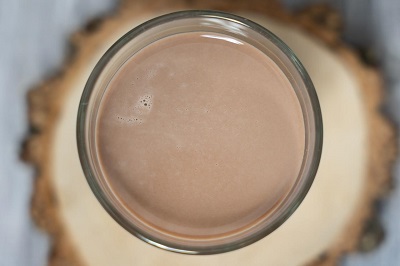 Can a pre-workout beverage really make that much of a difference to your performance and results? Does the specific choice of drink really change much? Is a cup of coffee, for example, better than a glass of water? What about all those products being sold at the gym?
Can a pre-workout beverage really make that much of a difference to your performance and results? Does the specific choice of drink really change much? Is a cup of coffee, for example, better than a glass of water? What about all those products being sold at the gym?
Does a Pre-Workout Beverage Decide the Effectiveness of Your Workout?
We all know that there are some types of exercise that provide more calorie burning than others. Your pre-workout beverage can also have a considerable impact on the number of calories that are burned throughout the time that you’re sweating as well as afterward, for that matter.
A new study has found that there are certain beverages that can give workouts a bigger boost than others, which is great news for dieters and people who are hoping to lose some fat while they tone up their muscles. Therefore, while what you drink won’t decide everything about your results, it can definitely help you to get the very most out of the exercises you complete.
What Does the Research Say About Pre-Workout Beverage Effectiveness?
A recent edition of the International Journal of Sport Nutrition and Exercise Metabolism published a study that showed that drinking a pre-workout beverage of coffee and other moderate sources of caffeine, an hour before a workout, can help with 15 percent more calorie burning post-workout than if a non-caffeinated beverage was chosen. The reason is that caffeine is a natural stimulant and it gives a boost to the metabolism, the respiratory rate, and even the level of adrenaline that is contained in the blood.
While previous research has already indicated that drinking coffee ahead of a workout can help an individual to put more into a workout and to keep exercising longer than he or she normally would, this study also showed that the benefits of caffeine also include enhanced calorie burning and they can last up to three hours after the workout has ended.
How Was the Research Conducted?
The researchers in this study analyzed a dozen men and women who would usually workout for about an hour four to seven times each week. They were asked to take either a placebo or a caffeine dosage of 0.5 mg, 1.5 mg, 3.0 mg, or 4.5 mg per kilogram of body weight. Once the placebo or dosage was taken, the participants in the study took part in an intermediate level workout for about an hour and then took a rest for about three hours. During the resting period, the researchers tested their respiration, heart rate, and blood pressure.
What they discovered was that the ideal level of metabolism boosting was achieved by the dosage of 4.5 mg per kilogram of body weight. This represented about 12 ounces of brewed coffee for a person who was 150 pounds (at Starbucks, that’s a size tall). On average, 15 percent more calories were burned for up to 75 minutes after resistance training, too. Try changing your pre-workout beverage to coffee and watch your metabolism reap the benefits. Just be sure to skip the sugar and cream.
What Can You Learn from the Research?
It’s clear that just choosing one pre-workout beverage over another won’t decide whether or not you achieve any results at all. Your exercises are simply not dependent on a drink choice before you hit the gym. However, what the research indicates is that your choice can play a role in making things easier and more effective overall.
Since every little bit counts when you want to squeeze every drop of effectiveness from the time you spend working out, a handy tip like the right choice of pre-workout beverage can make a difference. That difference can add up over time.



















